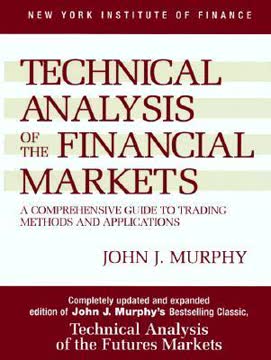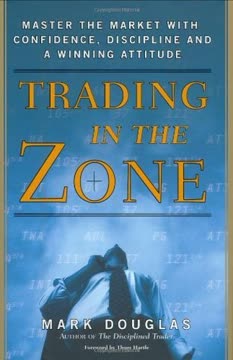重点摘要
1. 交易是一场心理游戏,不仅仅是市场分析
从最根本的层面来看,我们的思维方式存在问题。
心理框架很重要。 交易成功更多依赖于你的心理方法,而不是市场分析。许多交易者只专注于理解市场模式和指标,却忽视了管理自己心态的关键方面。最优秀的交易者已经培养出一种独特的心态,使他们在不利的市场条件下仍能保持纪律、专注和自信。
情绪控制至关重要。 恐惧、贪婪和其他情绪会显著影响交易决策,往往导致不良结果。成功的交易者学会了识别和管理这些情绪,防止它们干扰交易策略。他们保持客观性,并在面对挑战性市场情况时坚持自己的计划。
培养交易者的心态。 为了实现持续成功,交易者必须培养能够根据市场信息灵活进出交易的态度。这包括:
- 接受不确定性
- 以概率思维
- 保持纪律
- 专注于过程,而不仅仅是结果
- 不断学习和适应
2. 发展概率思维以克服情绪偏见
要在一个你可能轻易失去超过预期风险的环境中自信地运作,需要对自己有绝对的信任。
拥抱不确定性。 概率思维承认任何交易结果都是不确定的,但某些模式具有更高的成功概率。这种方法帮助交易者避免在本质上不确定的环境中寻求确定性的情绪陷阱。
专注于优势。 不要试图预测单个交易的结果,而是集中精力识别和利用统计优势。这意味着:
- 识别具有有利风险回报比的模式
- 理解损失是游戏的一部分
- 评估一系列交易的表现,而不是单个交易
管理期望。 通过概率思维,交易者可以更好地管理对胜负的期望和情绪反应。这减少了单个交易的心理影响,使决策更加一致。
3. 接受市场的固有不确定性
任何事情都可能发生。
拥抱未知。 市场受无数因素影响,许多是不可预测的。接受这一现实对于保持情绪稳定和做出明智的交易决策至关重要。
适应变化。 市场条件不断变化,过去有效的方法可能在未来无效。成功的交易者保持灵活性,并根据变化的市场动态调整策略。他们:
- 不断重新评估假设
- 对新信息和观点保持开放
- 必要时调整方法
为各种情景做好准备。 交易者应考虑多种潜在结果并为每种情况制定计划,而不是试图准确预测会发生什么。这种准备减少了焦虑,使在不确定性面前做出更自信的决策。
4. 培养自我意识并监控你的思维
创建一致性的第一步是开始注意你在想什么、说什么和做什么。
发展元认知。 自我意识对于识别和解决交易成功的心理障碍至关重要。通过观察你的思维、情绪和行为,你可以:
- 识别导致错误决策的模式
- 发现可能阻碍你进步的信念
- 在做出冲动交易之前抓住自己
练习正念。 定期的正念练习可以帮助交易者更好地意识到自己的心理状态和情绪反应。这种增强的意识有助于更好的情绪调节和更理性的决策。
保持交易日志。 记录你在交易前、交易中和交易后的想法、感受和决策,可以为你的心理模式提供宝贵的见解。定期回顾这个日志可以帮助你识别改进的领域并强化积极的习惯。
5. 信念塑造你的交易现实——明智地选择它们
信念似乎有自己的生命,因此会抵制任何改变其现有形式的力量。
认识到信念的力量。 你对交易、金钱和成功的信念显著影响你在市场中的感知、决策和行动。识别和审视这些信念对于提高交易表现至关重要。
挑战限制性信念。 许多交易者持有无意识的信念,这些信念会破坏他们的成功。常见的限制性信念包括:
- “我不配轻松赚钱”
- “市场是来对付我的”
- “在关键时刻我总是犯错”
识别和挑战这些信念是进步的关键。
培养赋能信念。 用支持你交易目标的信念取代限制性信念。例如:
- “无论结果如何,我都能从每笔交易中学习”
- “市场充满机会,我有能力抓住它们”
- “我信任我的交易系统和我执行它的能力”
6. 一致性来自将信念与交易原则对齐
一致性是一种心态,其核心是某些独特于交易的基本思维策略。
内化关键原则。 一致的交易结果来自于深刻内化并与核心交易原则对齐,例如:
- 在进入交易前定义风险
- 遵循经过充分测试的交易系统
- 无论结果如何保持情绪平衡
- 不断学习和改进
解决内部冲突。 识别并解决你的交易原则与现有信念或习惯之间的任何冲突。这可能需要有意识的努力和练习来重新调整你的思维和行为。
创建支持性习惯。 发展强化你交易原则的例行程序和实践。这可能包括:
- 定期回顾你的交易计划
- 每日冥想或可视化练习
- 系统的交易后分析
7. 在进入主观交易之前掌握机械阶段
交易的机械阶段专门设计用来建立几乎迫使你创造一致结果的交易技能(信任、自信和概率思维)。
从结构开始。 机械阶段涉及遵循一个严格、明确的交易系统而不偏离。这种方法帮助交易者:
- 建立纪律和一致性
- 培养对系统和自己的信任
- 通过反复接触交易结果来学习概率思维
初期消除自由裁量权。 通过消除主观决策,交易者可以专注于完美执行他们的系统,并在没有情绪干扰的情况下观察市场行为。
逐步引入灵活性。 随着交易者在机械系统中获得经验和信心,他们可以慢慢引入更多的自由裁量元素,始终以核心原则和风险管理规则为指导。
8. 将错误视为学习机会,而不是失败
市场中的每一刻都是独一无二的。
积极重构错误。 不要将错误视为失败,而是将其视为可以改进你交易的宝贵数据点。每个错误都提供了对你心理模式和改进领域的见解。
客观分析。 在回顾交易时,尤其是亏损交易时,保持客观、无情绪的视角。专注于:
- 你可以从中学到什么
- 如何将这些知识应用于未来的交易
- 对你的交易过程的具体、可操作的改进
培养韧性。 培养从挫折中反弹的能力对于长期交易成功至关重要。练习:
- 承认情绪但不被其控制
- 重新关注你的交易计划和长期目标
- 庆祝学习过程,而不仅仅是结果
9. 自律是转变交易信念和习惯的关键
我将自律定义为一种心理技巧,当目标或愿望与我们心理环境的其他组成部分(信念)冲突时,尽可能将注意力重新引导到目标或愿望上。
理解纪律的作用。 自律不是一种天生的特质,而是一种帮助弥合你当前习惯与理想交易行为之间差距的学习技能。
持续练习。 发展新的交易习惯和信念需要持续的努力。这包括:
- 定期回顾和强化你的交易原则
- 捕捉和重新引导无益的思维或行为
- 坚持应用你的交易规则,即使感到不舒服
利用外部支持。 利用工具和资源来强化你的纪律:
- 责任伙伴或交易小组
- 交易日志和绩效跟踪软件
- 定期的教练或指导课程
最后更新日期:
FAQ
What's Trading in the Zone about?
- Focus on Psychology: Trading in the Zone by Mark Douglas emphasizes the psychological aspects of trading, highlighting how a trader's mindset can significantly impact their success.
- Mindset for Consistency: The book argues that successful traders think in terms of probabilities and accept risks without emotional discomfort, aiming to develop a winning attitude.
- Market Neutrality: Douglas explains that the market is neutral, and traders must learn to perceive opportunities without fear or past biases, which is crucial for success.
Why should I read Trading in the Zone?
- Improve Performance: The book helps identify and overcome mental barriers that hinder trading success, offering insights into developing an effective trading mindset.
- Learn from Experience: Douglas shares practical advice and strategies from his extensive experience as a trading coach, applicable to real trading situations.
- Shift Perspective: It encourages redefining the relationship with the market, focusing on opportunities rather than threats, leading to a more enjoyable and profitable trading experience.
What are the key takeaways of Trading in the Zone?
- Mindset is Crucial: A trader's mindset is key to success, with an emphasis on thinking in probabilities and accepting trading risks.
- Emotional Control: Managing emotions like fear and pain is essential for maintaining discipline and making sound trading decisions.
- Beliefs Influence Perception: Traders' beliefs shape how they perceive market information, and changing these beliefs can improve decision-making and performance.
What are the best quotes from Trading in the Zone and what do they mean?
- "The market is neutral.": This highlights that the market has no agenda, helping traders detach emotions from market movements.
- "You don’t need to know what’s going to happen next to make money.": Emphasizes accepting uncertainty and focusing on strategies and probabilities rather than predictions.
- "The best traders think differently.": Suggests that successful traders have a unique mindset that allows them to navigate market complexities, essential for consistent results.
How does Mark Douglas define a successful trader in Trading in the Zone?
- Psychological Mastery: Successful traders manage their emotions effectively, making rational decisions based on market conditions.
- Adherence to Principles: They predefine risk and accept trade uncertainty, using strategies similar to casinos and professional gamblers.
- Consistent Execution: They consistently execute their trading plan without deviation, crucial for long-term profitability.
What is the trader's mindset according to Trading in the Zone?
- Thinking in Probabilities: Involves understanding that every trade has a probable outcome, helping traders remain objective.
- Embracing Uncertainty: Successful traders accept market unpredictability, allowing them to act without fear.
- Self-Trust and Discipline: Emphasizes trusting oneself and maintaining discipline, building confidence in strategies and execution.
How does Trading in the Zone define risk?
- Risk Acceptance: Risk is an inherent part of trading that must be accepted without emotional discomfort, understanding losses as natural.
- Emotional Response to Risk: Many traders struggle with risk's emotional aspects, leading to poor decisions; managing these emotions is crucial.
- Predefining Risk: Advocates for predefining risk before trades to maintain control and avoid emotional reactions, essential for discipline.
What are the common psychological barriers traders face in Trading in the Zone?
- Fear of Loss: A paralyzing fear of losing money can prevent trade execution, often stemming from past experiences.
- Overconfidence and Euphoria: Winning streaks can lead to overconfidence and reckless behavior, resulting in significant losses.
- Blame and Responsibility: Traders often blame the market for losses instead of taking responsibility, hindering learning and growth.
How can I develop a winning attitude as described in Trading in the Zone?
- Focus on Learning: View each trade as a learning opportunity rather than just a chance to make money, reducing emotional weight.
- Accepting Uncertainty: Embrace market uncertainty and understand losses as part of the process, allowing confident action.
- Building Self-Trust: Reinforce belief in one's abilities and decisions, fostering a positive mindset and self-trust.
What is the significance of perception in trading according to Trading in the Zone?
- Perception Shapes Reality: A trader's perception of market information influences their decisions, leading to success or failure.
- Emotional Filters: Emotional states can distort perception; recognizing and managing these filters is crucial for objectivity.
- Opportunity vs. Threat: Focus on perceiving opportunities rather than threats, leading to a more positive trading experience.
How does Trading in the Zone suggest overcoming fear in trading?
- Understanding Fear's Source: Fear often stems from past experiences and beliefs about the market; recognizing this helps detach emotions.
- Developing a Risk Framework: Create a framework for understanding and accepting risk, reducing fear and increasing confidence.
- Mindfulness and Presence: Staying present and focused helps avoid fear, leading to clearer thinking and better decision-making.
What are the five fundamental truths about trading in Trading in the Zone?
- Anything Can Happen: Emphasizes market unpredictability and the need for an open mindset.
- You Don’t Need to Know: Success doesn't require knowing future outcomes, reducing pressure to predict.
- Random Distribution of Wins and Losses: Accepts that wins and losses are randomly distributed, aiding in loss acceptance.
- An Edge Indicates Higher Probability: An edge suggests a higher probability of success, crucial for informed decisions.
- Every Moment is Unique: Recognizes that past patterns don't guarantee future results, encouraging adaptability.
评论
《交易心理》获得了大多数正面评价,读者们赞扬其对交易心理和心态的关注。许多人认为这本书在培养一致性和克服情绪障碍方面非常宝贵。批评者指出其内容重复和过度使用流行心理学。书中强调了概率思维、接受风险以及对市场信息保持中立视角。一些读者认为这本书对新手交易者来说是必不可少的,而另一些人则觉得它缺乏实用技巧。总体而言,评论者们欣赏这本书在解决交易心理方面的独特方法。
Similar Books















